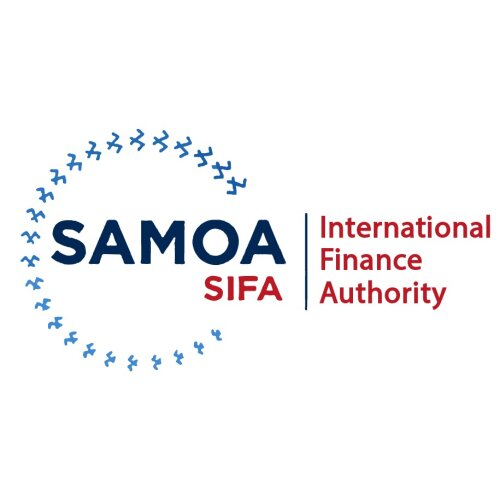Best Energy Regulatory Law Lawyers in Samoa
Share your needs with us, get contacted by law firms.
Free. Takes 2 min.
Or refine your search by selecting a city:
List of the best lawyers in Samoa
About Energy Regulatory Law in Samoa
Energy Regulatory Law in Samoa governs the generation, transmission, distribution, and regulation of electricity and other energy resources within the country. Samoa’s legal framework for energy primarily focuses on ensuring the safe, reliable, and efficient delivery of electricity, promoting renewable energy sources, and protecting consumers. The laws provide guidelines on licensing, tariffs, safety standards, and compliance obligations for both public and private participants in the energy sector. Oversight is typically provided by government authorities to ensure fair practice and to encourage sustainable energy development aligned with Samoa’s environmental and economic goals.
Why You May Need a Lawyer
There are various situations where individuals, businesses, and organizations may require legal assistance related to Energy Regulatory Law in Samoa. Some common reasons include:
- Applying for licenses to generate, transmit, or distribute electricity
- Navigating regulatory compliance requirements for renewable energy projects
- Resolving disputes with utility providers or government bodies
- Reviewing and negotiating energy supply contracts
- Understanding or challenging energy tariffs or pricing structures
- Ensuring safe and lawful installation of energy infrastructure
- Advising on environmental compliance in energy projects
- Assisting foreign investors with the legal framework for participating in Samoa’s energy sector
Legal counsel can help clarify procedural requirements, represent clients in hearings or negotiations, and ensure that clients’ rights and obligations are protected throughout the regulatory process.
Local Laws Overview
The primary legislation governing energy regulation in Samoa includes the Electric Power Corporation Act 1980, the Energy Act 2010, and supporting regulations. The Electric Power Corporation (EPC) is the main statutory body responsible for electricity generation and distribution. Key aspects of Samoa’s Energy Regulatory Law include:
- Licensing: Any entity involved in the generation, transmission, or distribution of electricity must be licensed by relevant authorities
- Tariff Setting: Electricity tariffs are reviewed and approved by government regulators to ensure fairness and affordability for consumers
- Renewable Energy: Policies encourage investment in renewable energy sources such as solar and wind, with specific incentives and technical standards
- Consumer Protection: Consumers have rights related to access, safety, and pricing, and can seek redress for service issues
- Environmental Compliance: Energy projects must adhere to environmental impact assessment and sustainability guidelines
- Dispute Resolution: Mechanisms exist for resolving conflicts between energy providers, consumers, and regulators
These laws work together to establish a transparent, accountable, and sustainable framework for the development and regulation of energy in Samoa.
Frequently Asked Questions
What is the role of the Electric Power Corporation in Samoa?
The Electric Power Corporation is responsible for generating, transmitting, and distributing electricity throughout Samoa. It is the primary utility provider, and also oversees the development of new projects and maintenance of energy infrastructure.
Do I need a license to set up a solar or wind energy system for my business?
Yes, any individual or entity intending to generate electricity for commercial purposes must obtain the appropriate license from the relevant regulatory body. Specific technical and safety standards must also be met.
How are electricity prices determined in Samoa?
Electricity prices, or tariffs, are reviewed and set by government authorities to ensure they are fair to consumers while allowing for investment in infrastructure and reliable service provision.
Are there incentives for renewable energy in Samoa?
Yes, the Government of Samoa encourages renewable energy through incentives such as grants, tax relief, and support for feasibility studies. These incentives are intended to boost investment and reduce reliance on imported fossil fuels.
How are disputes between energy consumers and providers resolved?
Disputes can be addressed through internal complaint- handling procedures of the utility provider, or brought before regulatory authorities for formal resolution. Legal representation may be helpful for complicated or unresolved issues.
What environmental regulations apply to energy projects?
All energy projects must comply with national environmental laws, including conducting environmental impact assessments and implementing mitigation measures where required.
Can foreign companies invest in the Samoan energy sector?
Yes, foreign companies can invest in Samoa’s energy sector, but must adhere to local licensing, regulatory, and investment requirements as set out in relevant legislation and policies.
What happens if I operate an energy system without the required license?
Operating without the proper license or regulatory compliance can lead to fines, suspension of operations, and other legal consequences. It is essential to seek legal advice before commencing any energy project.
How long does it take to get an energy generation license?
The process duration depends on the complexity of the application, the technology involved, and compliance with all technical and environmental standards. Early engagement with regulators and accurate submissions can help avoid delays.
Where can I get help if I have a problem with my electricity provider?
Consumers can contact the Electric Power Corporation’s customer service department, the Ministry of Works, Transport and Infrastructure, or seek independent legal advice if needed.
Additional Resources
If you need more information or support regarding Energy Regulatory Law in Samoa, consider contacting the following:
- Ministry of Works, Transport and Infrastructure - Energy Division: Responsible for policy development and oversight of the energy sector
- Electric Power Corporation: Provides utility services and information on connections, tariffs, and complaints
- Office of the Regulator: Oversees regulatory compliance, dispute resolution, and consumer protection issues
- Samoa Law Reform Commission: Offers legal information and advice on ongoing law reform initiatives in the energy sector
- Local legal practitioners specializing in energy and environmental law
Next Steps
If you need legal assistance with an energy regulatory matter in Samoa, start by gathering all relevant documents, including correspondence with energy providers, contracts, and any regulatory notices. Clearly outline your issue or objective. Research and consult with an experienced local lawyer or legal firm specializing in energy or administrative law. An initial consultation can help clarify your position, required steps, and potential outcomes. It may also be beneficial to engage early with relevant governmental bodies to seek guidance or resolve issues at a preliminary stage. Being proactive and informed can help ensure compliance and protect your interests in Samoa’s energy sector.
Lawzana helps you find the best lawyers and law firms in Samoa through a curated and pre-screened list of qualified legal professionals. Our platform offers rankings and detailed profiles of attorneys and law firms, allowing you to compare based on practice areas, including Energy Regulatory Law, experience, and client feedback.
Each profile includes a description of the firm's areas of practice, client reviews, team members and partners, year of establishment, spoken languages, office locations, contact information, social media presence, and any published articles or resources. Most firms on our platform speak English and are experienced in both local and international legal matters.
Get a quote from top-rated law firms in Samoa — quickly, securely, and without unnecessary hassle.
Disclaimer:
The information provided on this page is for general informational purposes only and does not constitute legal advice. While we strive to ensure the accuracy and relevance of the content, legal information may change over time, and interpretations of the law can vary. You should always consult with a qualified legal professional for advice specific to your situation.
We disclaim all liability for actions taken or not taken based on the content of this page. If you believe any information is incorrect or outdated, please contact us, and we will review and update it where appropriate.
Browse energy regulatory law law firms by city in Samoa
Refine your search by selecting a city.











